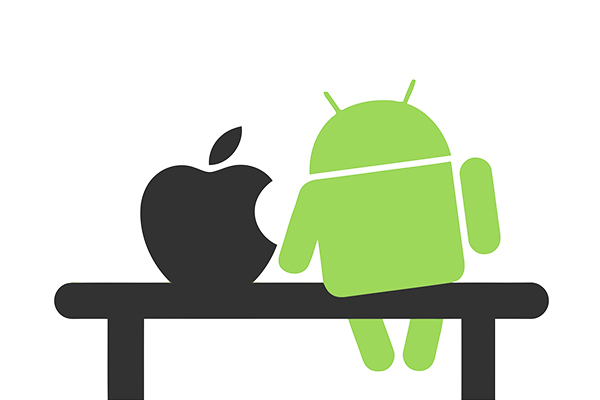The Evolving Landscape of Cross-Platform Mobile App Development
Explore the Benefits, Leading Frameworks, and Considerations in the World of Cross-Platform App Development
Introduction
In the ever-evolving world of mobile app development, staying on the cutting edge is crucial. The rise of smartphones and their ubiquity has led to a surge in demand for apps across various platforms. Historically, developers faced a significant challenge: creating separate apps for iOS and Android, each with its unique codebase and requirements. This cumbersome process not only consumed more time and resources but also hindered the ability to reach a broader audience effectively. Cross-platform mobile app development has emerged as a game-changer, allowing developers to build apps that work seamlessly across multiple platforms.
In this blog post, we'll delve into the exciting realm of cross-platform development, explore its benefits, and introduce you to some of the leading frameworks that are reshaping the industry.
The Rise of Cross-Platform Development
Traditionally, native app development required distinct skill sets for iOS (using Swift or Objective-C) and Android (using Java or Kotlin). This meant that developers often had to double their efforts to create apps for both platforms. The need for separate codebases not only prolonged development cycles but also introduced potential inconsistencies in the user experience.
Cross-platform development aims to fix these problems. It allows developers to use a single codebase to build apps that can run on multiple platforms seamlessly. This approach minimizes redundancy and maximizes efficiency, making it an attractive option for businesses and developers alike.

Advantages of Cross-Platform Development
Code Reusability: The ability to reuse a substantial portion of your codebase across platforms significantly accelerates development.
Cost Efficiency: Building a single app for multiple platforms is cost-effective compared to developing separate native apps for iOS and Android. Fewer resources are needed for maintenance and updates.
Faster Development: Cross-platform frameworks often come equipped with pre-built components and libraries, which speeds up the development process.
Consistency: Cross-platform apps provide a consistent user experience across different devices, ensuring your brand's integrity. It also provides users with a unified experience regardless of the device they're using.
Wider Reach: Targeting a broader audience has never been easier. By releasing your app simultaneously on iOS and Android platforms (and sometimes even the web), you can reach a more extensive user base quickly.
Leading Cross-Platform Frameworks
Now for the big part: What frameworks can you use in order to build a Cross-Platform app?

React Native: Developed by Meta, React Native allows you to build mobile apps using JavaScript and React. It's renowned for its performance and boasts a vast and active community of developers. React Native has been used by companies like Facebook, Instagram, and Airbnb. Learn React Native here
Flutter: Google's UI toolkit for building natively compiled applications, Flutter has gained popularity for its expressive and flexible design. It enables you to create visually stunning and high-performance apps. Google Ads and Alibaba are among the notable users of Flutter. Learn Flutter here
Xamarin: Owned by Microsoft, Xamarin uses C# to create native apps for iOS, Android, and macOS. Xamarin's robust ecosystem and seamless integration with Microsoft technologies make it a top choice for enterprises. UPS and Siemens Healthineers are examples of Xamarin users. Learn Xamarin here
Ionic: Ionic is a popular open-source framework that leverages web technologies like HTML, CSS, and JavaScript to create cross-platform mobile apps.
Challenges and Considerations
While cross-platform development offers numerous benefits, it's essential to consider some challenges that may arise:
Performance Differences: In certain scenarios, native apps may offer slightly better performance than cross-platform counterparts. However, advancements in cross-platform frameworks are continually narrowing this gap.
Platform-Specific Code: While cross-platform development encourages code sharing, there may still be situations where platform-specific code is necessary to access unique features or optimize performance. Developers must be aware of these nuances.
Tooling and Ecosystem: Different frameworks come with their toolsets and ecosystems. Choosing the right one for your project requires careful consideration of your specific requirements and constraints.
Learning Curve: Developers may need to learn new languages or paradigms when adopting cross-platform development, which can present a learning curve.

Conclusion
Cross-platform mobile app development is a transformative force in the tech industry. It empowers developers to create high-quality apps efficiently and reach a broader audience than ever before. As the field continues to evolve, staying informed about the latest developments and frameworks is key to success.
Are you ready to embrace cross-platform development and supercharge your mobile app projects? The future of mobile app development is here, and it's cross-platform! By harnessing the power of frameworks like React Native, Flutter, and Xamarin, you can create stunning and performant apps that captivate users across a multitude of devices. Whether you're a seasoned developer or just starting, cross-platform development offers an exciting and efficient path forward in the ever-expanding world of mobile apps.
